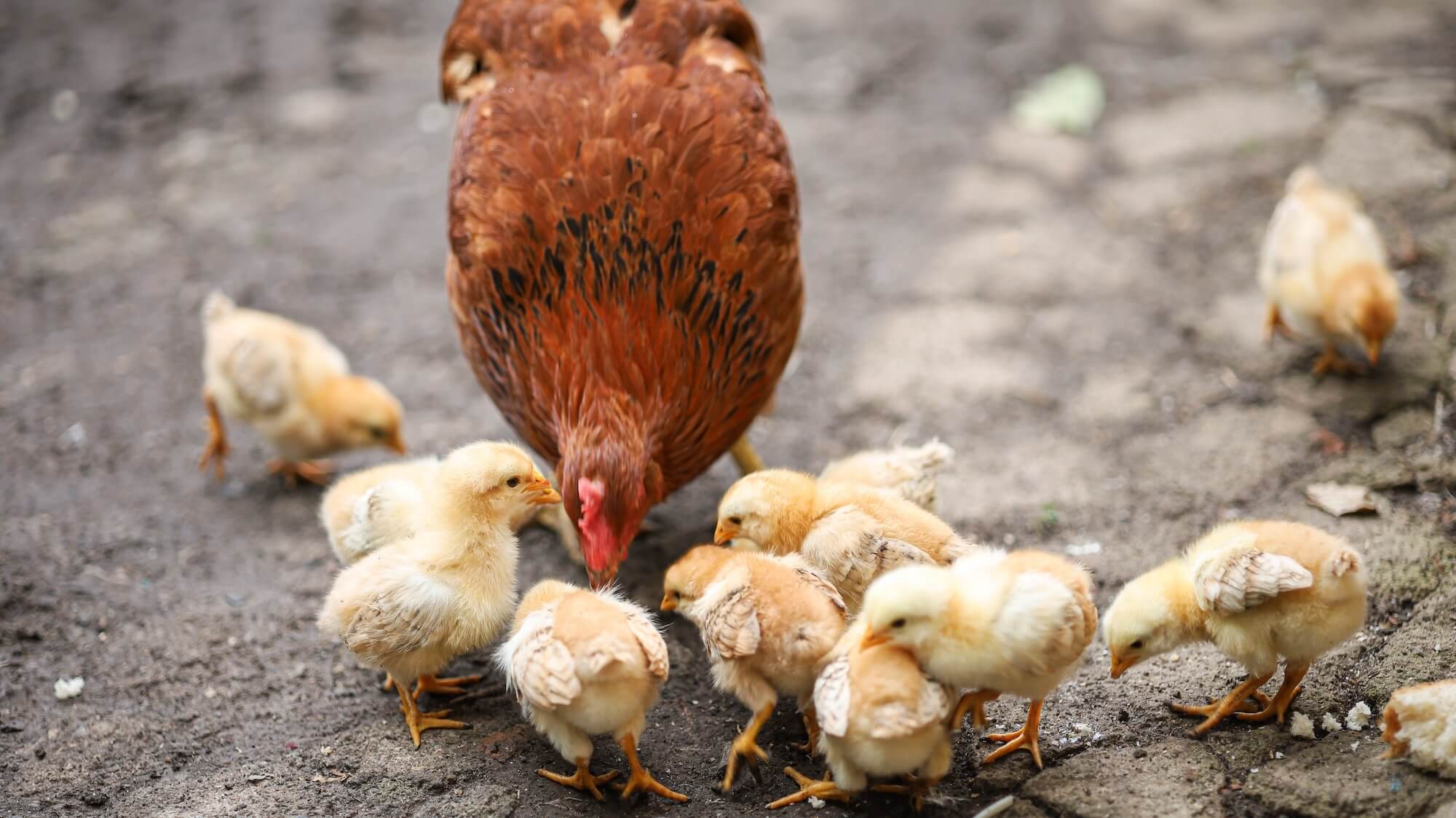What to Feed Chickens for Fast Growth, Eggs & Cost Savings
What to feed baby chicks (0–8 Weeks)
Baby chicks have unique dietary needs to support rapid growth and immune development. The standard feed for chicks is:
Chick Starter Feed:
- Protein: 18–20%, 22% for broilers
- Medicated vs Unmedicated:
- Medicated starter contains amprolium, a coccidiostat that helps prevent coccidiosis in environments where it's common.
- Unmedicated starter is preferred for flocks raised naturally or when chicks are vaccinated against coccidiosis.
- Avoid treats or supplements during the first week to establish gut health.
What to feed pullets (8–24 Weeks)
Pullets (young hens) require moderate protein and fewer calories than chicks or layers:
Grower Feed:
- Protein: 15–17%
- No added calcium (too much can cause kidney damage before laying starts).
- Gradually introduce scraps, greens, or foraging access.
What to feed laying hens (24+ Weeks)
Once hens start laying, their feed must support egg production.
Layer Feed:
- Protein: 16–18%
- Calcium: 3.5–4% to support eggshell development.
- Continue feed year-round to maintain production and health.
Nutrients Chickens Need (and Where to Get Them)
Protein
- Essential for muscle growth and egg development.
- Sources: pellets, insects, mealworms, black soldier fly larvae, legumes, fish meal.
Calcium
- Supports eggshell production.
- Provide oyster shell or crushed eggshells free-choice in a separate dish.
Grit
- Chickens don’t have teeth—grit helps them grind food in the gizzard.
- Offer insoluble grit (like granite) especially if not foraging on pasture.
Vitamins & Minerals
- Found in quality commercial feed or supplements.
- Vitamin A, D, E, selenium, and B-complex are essential for egg production and immunity.
Medicated vs. Unmedicated Feed: What’s Right for You?
- Medicated starter feed is useful in brooder settings where disease prevention is critical.
- If your chicks were vaccinated for coccidiosis, unmedicated feed is fine.
- Medicated feed is only for chicks—not for layers or meat birds.
Benefits of Pasture and Foraging for Chickens
- Chickens naturally forage for bugs, seeds, grass, and weeds, which boosts nutrition.
- Pasture access reduces reliance on purchased feed.
- Encourages exercise, reduces boredom and pecking behavior.
- Supports yolk color, feather quality, and immunity.
Tip: Rotate pastures or chicken tractors to prevent overgrazing and parasite buildup.
How to Create a Balanced Chicken Diet with Grown Food & Scraps
You can supplement feed with homegrown or scrap-based foods:
| Food Source |
Benefit |
Note |
| Vegetables |
Fiber, vitamins (e.g. carrot tops, squash, kale) |
Avoid raw potato, onion |
| Fruits |
Antioxidants and sugar for energy |
Limit sugary fruit portions |
| Grains/Seeds |
Scratch mix, corn, sunflower seeds |
High calorie; treat only |
| Leftovers |
Bread, rice, oatmeal, greens |
No salty/spicy/fried food |
| Garden Waste |
Pulled weeds, garden surplus |
Avoid toxic plants |
| Insects |
Mealworms, soldier fly larvae |
High-protein superfood |
| Cooked Eggs |
Protein & recycling surplus eggs |
Feed in moderation, scrambled |
Scrap Feeding Tip: Use a compost pile that chickens can scratch through for bugs and fermented veggie scraps.
How to Save Money on Chicken Feed
Feeding a flock can add up—here’s how to stretch your feed budget:
- Bulk Buy & Store Smart: Purchase feed in 40–50 lb bags and store in airtight containers.
- Grow Your Own: Grow extra produce just for your birds (e.g., squash, sunflowers, kale).
- Barter or Swap: Trade eggs or labor for feed or garden produce.
- Pasture-Raise: Let chickens forage for a portion of the day.
- Fodder Systems: Sprout grains like barley for ultra-cheap fresh greens.
- Compost Pile Access: Let chickens eat bugs and food scraps naturally.
Bonus Tips
- Chickens need constant access to fresh water, especially in summer.
- If they can dip their waddles into the water as they drink, it will help them stay cool.
- Avoid moldy or spoiled food—it can cause botulism or other illnesses.
- Monitor weight and feather condition to assess diet quality.
- Keep feed dry to avoid spoilage and waste.
Tools to Track Chicken Feeding & Health
Using a farm management app like FarmKeep can help you:
- Track feed expenses and savings from foraging
- Log egg production vs feed input
- Record diet changes, flock health, and supplement schedules
- Monitor scrap feeding to avoid overfeeding
